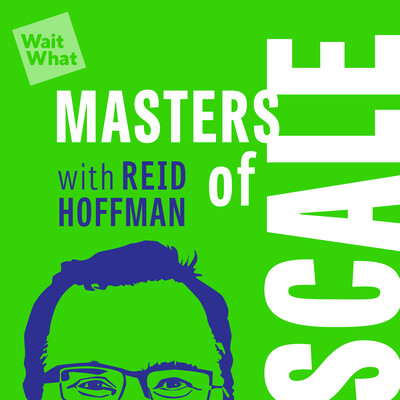Google's 20 Percent Rule Actually Helps Employees Fight Back Against Unreasonable Managers While Google's famous 20 percent rule has often been lauded for giving employees time to work on their passion, Eric Schmidt explains the real reason behind the initiative on 'Masters of Scale.'
Opinions expressed by Entrepreneur contributors are their own.

Editor's Note: In the new podcast Masters of Scale, LinkedIn co-founder and Greylock partner Reid Hoffman explores his philosophy on how to scale a business -- and at Entrepreneur.com, entrepreneurs are responding with their own ideas and experiences on our hub. This week, we're discussing Hoffman's theory: the smartest companies don't tell their employees how to innovate, they manage the chaos.
The smartest companies manage chaos – not kill it.
That's a fact that Reid Hoffman, LinkedIn co-founder and Greylock Partner, knows well.
"If you want to invent something new, or reinvent something at a spectacular order of magnitude, you have to suppress management," says Hoffman on Masters of Scale, a podcast exploring counterintuitive ideas to growth in which he hosts. "Let your employees pursue wild ideas that may raise your eyebrows."
Related: Check Out a New Podcast Hosted by Reid Hoffman -- And Join the Conversation on Entrepreneur.com
It's something Eric Schmidt knows well, too. As Google's former CEO and current chairman, Schmidt is known for an anti-management philosophy. At Google, he introduced the notion that product leaders should persuade engineers to join their team.
He even helped implement the famous free-time rule, allowing employees to spend 20 percent of their time on anything they want. And as Schmit shares, provided another benefit: allowing employees to push back against unreasonable managers.
"The interesting thing about 20 percent time, is -- although it's reported as, you get to spend one day doing whatever you want -- what it really served was a check and balance on the power of the engineering management over the subject," Schmidt tells Hoffman on the Masters of Scale podcast..
For instance, if a manager is asking an employee to do more, work harder and increase output, an "employee can legitimately look that boss in the eye and say, ""I'll give you 100 percent of my 80 percent time," says Schmidt. "That simple principle, which never really happens in practice, but it's understood, empowers the employee with both dignity, but also some choices."
In the sixth episode of Masters of Scale Hoffman and Schmidt discuss how managers get their roles wrong, often at the cost of their team's creativity. Micromanagement, they explain, hinders idea generation and honesty. As they explain in this one-of-a-kind conversation, it's these elements that that help businesses innovate at a rate they'll need to succeed.
Learn more in the latest episode of this new series above. Listeners can also access new episodes on Apple, Google, Stitcher, Spotify and other streaming platforms.


















